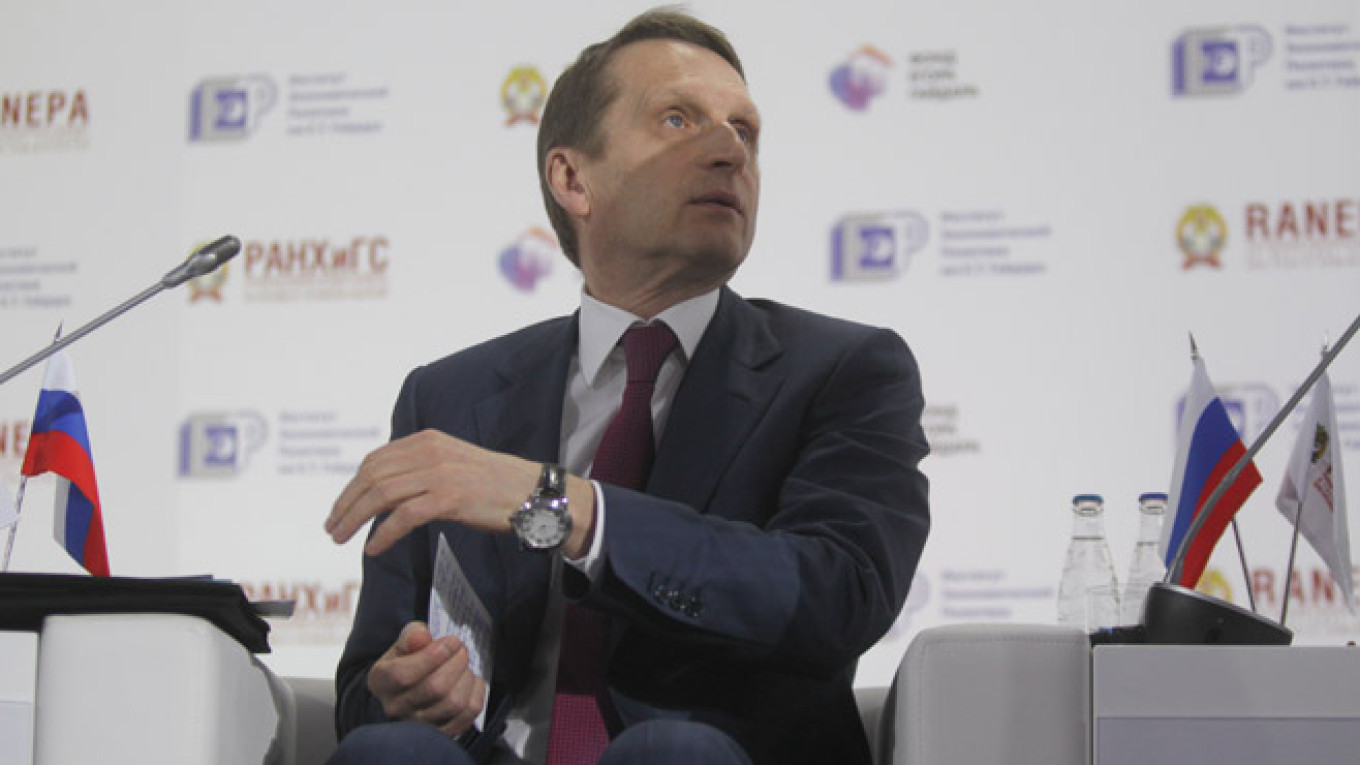As Russia considers exiting the Council of Europe after its voting rights were suspended for the second year in a row last week, the fate of Russia's death penalty moratorium hangs in the balance.
Russia issued a moratorium on the death penalty in 1996 shortly after joining the Council of Europe. All of the council's other 46 member states have formally abolished the death penalty in peace time.
The moratorium has proven controversial in Russia. Reinstatement of the death penalty was supported last year by 52 percent of the Russian population, a survey by the independent Levada Center revealed. Notably, the 2014 results represented a 9 percent decrease from 2012, when the Moscow-based pollster conducted a similar survey.
In recent years several high-ranking Russian officials, including Investigative Committee head Alexander Bastrykin, have called for the death penalty to be reinstated for particularly gruesome crimes.
On Saturday in an interview with state television channel Rossiya 24, the speaker of Russia's lower house of parliament, Sergei Naryshkin, said that while he is personally opposed to the death penalty, a discussion of its reinstatement is under way as Russia considers leaving the Council of Europe.
However, he added that Russia "has its own principles that comply with many positions, norms and conventions of the Council of Europe independent of whether we are a member of the council."
The Council of Europe promotes collaboration between all member states in Europe.
It also oversees the European Court of Human Rights, which in December upheld a ruling that Russia should pay 1.9 billion euros ($2.1 billion) to shareholders of defunct oil giant Yukos. According to ECHR statistics, Russia lost significantly more claims than any other member state during the course of 2014.
Naryshkin confirmed in the state TV interview that Russia exiting the Council of Europe would mean exiting the European Court of Human Rights as well.
Russia's voting rights in the Council of Europe's Parliamentary Assembly were initially suspended last year over the country's annexation of Crimea from Ukraine. That suspension was prolonged in a decision by the assembly on Wednesday. Russia subsequently said it would boycott the assembly until at least 2016.
Last week two Russian lawmakers, including Communist Party leader Gennady Zyuganov, were reportedly assaulted by a pair of Ukrainian statesmen at the Parliamentary Assembly.
One of the Ukrainian officials, Dmytro Linko, said in a Facebook post that he "smacked" Zyuganov in the face. Following the incident, the Parliamentary Assembly said it would improve its security measures.
Contact the author at p.spinella@imedia.ru
A Message from The Moscow Times:
Dear readers,
We are facing unprecedented challenges. Russia's Prosecutor General's Office has designated The Moscow Times as an "undesirable" organization, criminalizing our work and putting our staff at risk of prosecution. This follows our earlier unjust labeling as a "foreign agent."
These actions are direct attempts to silence independent journalism in Russia. The authorities claim our work "discredits the decisions of the Russian leadership." We see things differently: we strive to provide accurate, unbiased reporting on Russia.
We, the journalists of The Moscow Times, refuse to be silenced. But to continue our work, we need your help.
Your support, no matter how small, makes a world of difference. If you can, please support us monthly starting from just $2. It's quick to set up, and every contribution makes a significant impact.
By supporting The Moscow Times, you're defending open, independent journalism in the face of repression. Thank you for standing with us.
Remind me later.


